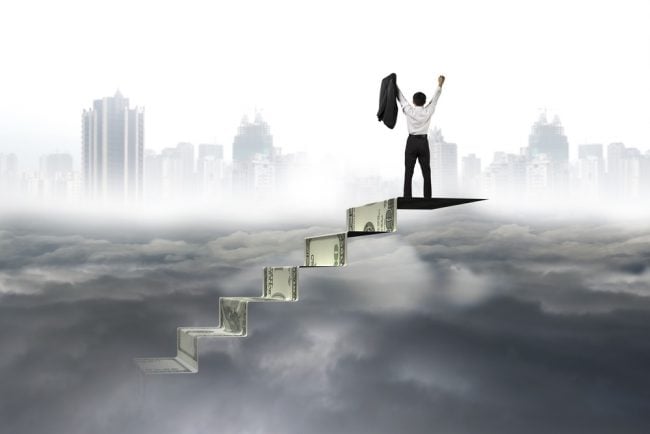WASHINGTON – As Congressional wrangling over the economic stimulus package stretches into 2002, any impact it could have on curing the recession diminishes while its potential for causing price inflation down the road increases.
Fiscal policy takes so long to put into action that "you usually end up stimulating an economy that no longer needs to be stimulated," said CUNA economist Mike Schenk. "If there is no package at all, there will be less stimulus and the economy won't grow as fast. The flip side is that there won't be as much inflation."
Economists generally agree that the package would add buoyancy to any recovery, and that the anticipated recovery next year will be less robust without it. A growing number, however, are beginning to express concern that the measures could prove to be "too much, too late" because the Federal Reserve's interest rate cuts have already turned the economy around.
Recommended For You
"There have been a lot of cuts in interest rates over the past year, and that's what usually works," said Schenk. "There are also a lot of things in the package that wouldn't do much at all to help the economy. Tax breaks won't get businesses to invest when capacity utilization is only at 75%."
"Some of these items have economic impact and some have social impact," said NAFCU economist Jeff Taylor. "The first and second quarters could be weakened without the package, but the package all together would add only between 0.5% and 1.0% to the GDP (gross domestic product). If this was six months ago, it really would be a make or break situation" in terms of helping the economy.
President Bush has said that the current stimulus package, if enacted quickly, would save 300,000 U.S. jobs. His economic advisers estimate that failing to enact the $100 billion package would reduce GDP by 0.5 of a percentage point from late 2001 to the end of 2002, and that this translates to the number of jobs quoted by the President in a recent radio address. The U.S. economy as measured by GDP contracted by 1.3% in the third quarter but is generally believed to be nearing a turnaround.
Taylor said Congress has other reasons to get back to work on the bill when it returns this month, not the least of which is public confidence. "If nothing gets done when they get back, it could erode confidence and that will come back to haunt them," he said. "This is not the time to leave something undone."
Economically savvy members could also be taking their time to get a good picture of the economy's health in the fourth quarter before forging ahead, NAFCU's Taylor said. "Aside from politics, I think a lot of these guys are saying, let's wait and see if the economy is going to rebound on its own," he said.
There is, of course, no putting politics aside. The Republican controlled House and Democratic controlled Senate were still deadlocked over the balance of help for business and aid to individuals when a last ditch effort to reach a compromise failed, sending them home for the holidays blaming each other for the impasse.
There is agreement, in fact, on parts of the package that would provide the most short-term aid to the economy. Both sides want to extend the 26-week limit on unemployment benefits for an additional 13 weeks, although Democrats would increase the weekly benefits amount by $25.00. They also agreed on a one-time round of tax rebate checks of up to $300 for individuals and $600 for couples for low income workers left out of the first round of tax rebates last fall.
Schenk said measures aimed at lower income workers give the economy the biggest bang for the buck. "This is the segment of the population that spends money right away," he said. "The rich are far less likely to spend any rebate" because they don't have to. "Most economists would say this is the segment to target if you want to increase consumer spending."
Continued consumer spending has until now kept the economy from falling more deeply into recession. A University of Michigan survey showed consumer confidence rising sharply in December and another survey showed actual spending holding its own in November, but Christmas spending at retail stores offering extended hours and deep discounts was disappointing.
The two sides had also reached agreement on a cut in the personal income tax rate to 25% from 27%. The change would affect individuals making more than $27,900 and couples making more than $46,700 per year.
One proposal to help businesses was without controversy and both sides agreed to tax breaks that would encourage companies to make new investments by giving them more generous write-offs for doing so. But Democrats balked at approving an accelerated schedule for huge business tax cuts passed earlier this year which, unlike the tax break for new investment, do not require the businesses to do anything for the money. Democrats also dislike a measure that would eliminate the alternative minimum tax for business altogether.
How to help unemployed workers obtain health insurance was a major sticking point. Republicans wanted to give an immediate 50% tax credit to laid off workers to purchase health insurance. Democrats argued this would be of no benefit to lower income workers and wanted a direct payment to cover 75% of the cost of continuing coverage that had been provided by employers.
As they left for the holiday, both House Speaker Dennis Hastert of Illinois and Senate Leader Tom Daschle of South Dakota said they were willing to come back from vacation early and roll up their sleeves.
© Touchpoint Markets, All Rights Reserved. Request academic re-use from www.copyright.com. All other uses, submit a request to [email protected]. For more inforrmation visit Asset & Logo Licensing.






